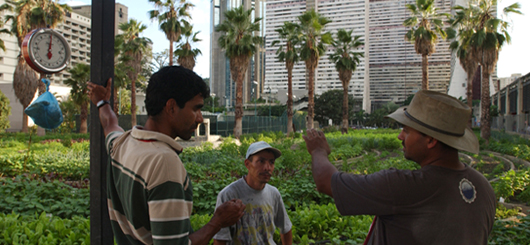Tools
A) Innovative programs for urban equipment and services in the area of influence:
- Programs for urban and peri-urban agriculture that support the production of fresh food, create employment, recycle urban waste, create green belts, and strengthen the resilience of cities in the face of climate change.
- Integrated urban projects with "social urbanism" policies in order to execute sectoral policies and concentrate public investment on informal neighborhoods
- “Urban recovery” interventions, especially in regard to rehabilitating historic centers.
- New systems of rural – urban mobility
B) Programs for dealing with irregular settlements (marginalized neighborhoods, favelas, lost cities, etc.). The adaptation and prevention strategies and measures used to break the vicious circle that perpetuates poverty in irregular settlements include, for example, incentives and disincentives in land and housing production, technical instruments for urban land management, and urban improvement programs.
C) Approaches based on functional and spatial systems. These kinds of instruments help promote urban, territorial and rural planning policies and figures that are integrated and inclusive, which support the analysis of the flow of resources within the territory (people, water, biodiversity, and food).
D) Data-based decision-making systems. Establishing and improving knowledge systems and filling gaps in the data in order to have evidence that supports the planning methods that reinforce the urban-rural continuum and promote inclusive, sustainable development.
E) Develop criteria and approaches for land use planning, management and regulation. The approaches should be designed to be sensitive to culture, the environment and health in planning and providing strategic routes.

